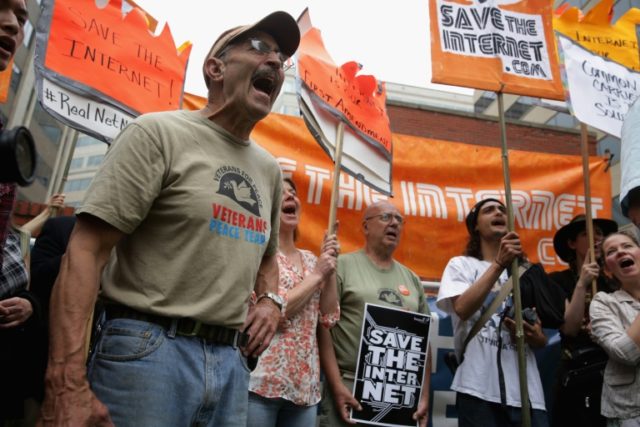Washington (AFP) – A US appeals court panel on Tuesday upheld hotly contested “Open Internet” regulations that prohibit broadband carriers from playing favorites or blocking competing online services.
The so-called “net neutrality” rules, which aim to prevent a two-speed Internet, won court approval after two past efforts failed.
The US Appeals Court panel in Washington dealt a setback to major broadband firms like Verizon and AT&T, which claimed the rules unfairly restrict providers and discourage investment.
Judge David Tatel, writing for the 2-1 majority, said the Federal Communications Commission’s decision last year to reclassify Internet firms as “common carriers” that can be regulated like phone companies “is a permissible exercise of its authority.”
In a 115-page opinion, Tatel wrote that “the role of broadband providers is analogous to that of telephone companies: they act as neutral, indiscriminate platforms for transmission of speech of any and all users.”
The ruling is a victory for consumer groups and others who argued that a handful of Internet providers, without these rules, could effectively block or hamper big online services like Netflix or smaller ones that compete with those backed by the broadband provider.
“This decision should lay to rest what has become a needlessly contentious issue,” said Gene Kimmelman of the consumer group Public Knowledge.
“Now consumers will be assured the right to full access to the Internet without interference from gatekeepers.”
The new rule also applies the concept to mobile Internet carriers, preventing them from blocking or throttling content for competitive reasons.
Two previous efforts by the US Federal Communications Commission were tossed out by the appellate court in Washington, but earlier this year the agency tried again with a new twist — reclassifying broadband firms as “common carriers” which can be regulated like phone companies under a 1934 law.
But the cable and Internet providers, which contend the regulation limits their ability to invest and innovate, could appeal the ruling to the US Supreme Court.

COMMENTS
Please let us know if you're having issues with commenting.